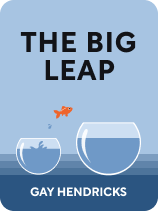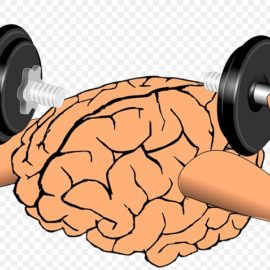

This article is an excerpt from the Shortform book guide to "The Big Leap" by Gay Hendricks. Shortform has the world's best summaries and analyses of books you should be reading.
Like this article? Sign up for a free trial here .
Do you have difficulty saying “no” even though you know you should? How do you get better at saying “no” to things and people that don’t serve you?
Many people struggle to say “no” because they don’t want to compromise their relationships. But being a “yes” person won’t get you very far in life. If you are serious about reaching your full potential, don’t be a “yes” person—learn how to set healthy boundaries.
Read about the importance of setting healthy boundaries.
How to Set Healthy Boundaries
Living a fulfilled life requires that you prioritize spending time on activities that enhance that state, and avoid activities that don’t. But one of the most common problems people tend to struggle with is setting healthy boundaries by saying “no.” When you take stock of what you tend to spend time on, you may notice you invest a lot of energy into doing things you really don’t want to do, because you feel obligated to say “yes” to others. Hendricks suggests you start saying “no” to anything you can that doesn’t align with your state of fulfillment.
Each time you’re asked to do something, don’t respond immediately. Take some time first to think about whether it aligns with life in your state of fulfillment. Of course, doing things in the service of others often feels fulfilling, so in those cases, say “yes.” However, in some cases, you may conclude that saying “yes” to something would be counterproductive to your fulfillment. For instance, if you’re asked to take on an extra project at work, but that would mean sacrificing spending time with your family, you may decide that’s not worth the sacrifice, even if it would mean extra money. In this case, spending time with your loved ones will enhance your state of fulfillment more than money will. So, you must say “no.” Hendricks calls this an “Enlightened No” because you’re explicitly saying no for a higher purpose—the purpose of living in your state of fulfillment.
(Shortform note: The internet abounds with self-care advice extolling the virtue of saying “no.” However, there may also be good reason to critique this practice, as well as other practices encouraged under the guise of self-care. We need to be careful that we’re saying “no” for the right reasons, and not just to avoid responsibility or obligations to others.)

———End of Preview———
Like what you just read? Read the rest of the world's best book summary and analysis of Gay Hendricks's "The Big Leap" at Shortform .
Here's what you'll find in our full The Big Leap summary :
- How to overcome the psychological barriers to success and fulfillment
- Why most people have a self-imposed limit to happiness
- How to identify your own false beliefs and stop self-sabotaging






